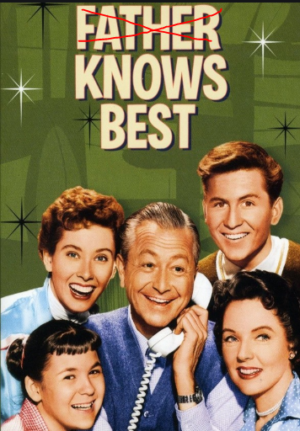Child Knows Best?

Working as a Children and Youth minister for the last ten years has been a rewarding experience. I have gotten to know the children of our congregation in unique and meaningful ways. I have listened to the hopes, dreams, and aspirations of our children as elementary students through high school, and now some in college. I have observed many things about children and their thought processes and decision-making abilities.
What is fascinating about children is there are some children who know what they want to do and be in life at a very early age. When asked what they want to be, the vast majority of children list a variety of disparate careers together such as a fireman, astronaut, and the President of the United States, believing they can do it all in one lifetime. Although there are not many, there are a select few that know what it is they were meant to do or be and adhere to this with a slight variation the rest of their lives.
“Piaget identified four stages in cognitive development” including, “The Sensorimotor stage (Infancy)”, “the Pre-operational stage (Toddler and Early Childhood)”, “Concrete operational stage (Elementary and early adolescence)”, and “the Formal operational stage (Adolescence and adulthood)”.[1] Michael Bird in his review of Transgender Children and Young People: Born in Your Own Body, explains how a variety of authors grapple with transgender issues, stating that,
The editors begin by noting the transgender activist enterprise of normalising and valorising transgenderism and setting themselves up as champions of tolerance and inclusion against bigotry and gender binaries. A corollary of this activism is the transgendering of children who exhibit traits of alleged gender dysphoria by gender reassignment, puberty blockers, and possibly even surgery. The rationale being that a child’s physical and psychological well-being is improved by transitioning and anything that resists or questions such a transition is inherently abusive towards the child.”[2]
Given that children change and grow so much in their early years of life through their teenage years, as noted by Piaget, it seems irresponsible to let children make decisions about their sexuality based on how they may feel in their present stages of growth. One of the contributing authors of the book Bird reviews, Stephanie Davies-Arai, agrees with this assessment saying,
a further problem with transgender ideology is that it assumes a “child-knows-best” model of parenting where children are deemed competent to determine their identity and medical needs (20-21). The result is that “children are seen as autonomous mini-adults with identifies impervious to influence, and who come ready-made in two varieties, pink or blue” (21). The problem is that however a six-year child knows themselves (which is unlikely to be without parental influence) they only know themselves as a six-year-old, with the cognitive development and decision-making tools of a child.[3]
Although I have not noted this level of influence of transgender ideology with the children I work with, this is a disturbing trend that those who minister to children and youth should be aware of. Providing parents and teachers with information on transgender ideology aids in understanding what is being promoted and how these issues can be addressed with their children and community. There may be a small minority of children who feel from a very early age that they are in the wrong body, experiencing gender dysphoria, but I believe that this is not the case for the majority. Children need to be allowed to fully mature cognitively before life-changing and often irreversible decisions are made on their behalf. To allow otherwise constitutes child abuse, plain and simple.
[1]. Valdosta State University. “Piaget’s Theory of Cognitive Development.” Educational Psychology Interactive: Cognitive Development. February 16, 2006. http://chiron.valdosta.edu/whuitt/col/cogsys/paiget.html (accessed March 6, 2020).
[2]. Bird, Michael F. “A Must-Read Feminist, Queer, Disability & Psychoanalytic Critique of Transgenderism.” Patheos, May 2019.
[3]. Ibid.
5 responses to “Child Knows Best?”
Leave a Reply
You must be logged in to post a comment.
Great write up Mary. Lot of heavy stuff to way through this week and I agree with you in that we must account for the small minority who are effected by this but not cause all to go this route unnecessarily.
Excellent, Mary. The “child knows best” ideology seems to have begun back in the 1960’s with the change in parental training by Dr. Spock. There was a distinct shift toward giving children far more authority in their own lives. Now sixty years later we are here where children are not only given more authority but even believe they know best. I don’t doubt some adjustment was needed from previous eras’ ideas about children but once again, it appears the pendulum has gone to the other extreme.
Good blog here, Mary. I wrote about something similar in my own context of parenting young children. It’s hard to navigate this context when our job is to steward young minds and hearts!
Great post Mary, This is indeed a weighty issue and I like your suggestion on the need for ministers who work with children and youth to be aware of. Its important for the church to sensitize the parents and care-givers and equip them with requisite knowledge to assist their children and youth.
Powerful post, Mary. Thank you for serving youth in such as special way as you do. I truly appreciated the quote: “Given that children change and grow so much in their early years of life through their teenage years, as noted by Piaget, it seems irresponsible to let children make decisions about their sexuality based on how they may feel in their present stages of growth.” Having studied Piaget in my Counseling program, I appreciate that you related his studies to your blog. And I agree that youth are not yet ready for the responsibility of making life-altering decisions for their own lives.